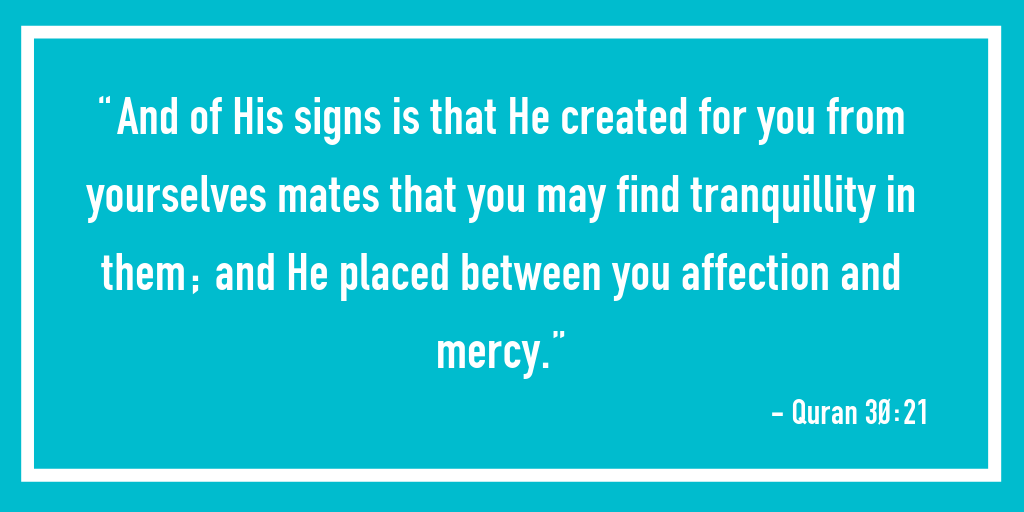Jamilla is Hestia’s Insight Officer, a project manager at the Muslim Council of Britain and a contributor to the book ‘It’s Not About the Burqa’ where she wrote about mental health in the Muslim community. Follow her on Twitter @JamillaTweets and follow the mental health organisation she has founded @MuslimMental
Ramadan is the month of mercy, where we are implored to treat those around us with love and kindness in a hope to get closer to God and our religion. It is a peaceful time for many of us, but for victims of domestic abuse it can be a stressful time where their mistreatment can be exacerbated by their perpetrator/s.
With Ramadan only a few days away, Muslims across the world are looking forward to this blessed month. It is the month in which the Holy Quran was revealed to the Prophet Muhammad (pbuh). Throughout the month, the majority of adult Muslims will be fasting from dawn to sunset for 29 or 30 days (dependent on the lunar calendar and the sighting (or not), of the moon). Ramadan is not only a time when one abstains from food and drink during daylight hours, but one in which swearing, sexual relations, gossiping, being selfish or disrespectful, and listening to music are all forbidden.[1]

Muslims look forward to Ramadan as it gives us an opportunity to get closer to God; to focus on discipline and self-restraint as well as encouraging kindness to one another. However, for victims of domestic abuse, Ramadan doesn’t always offer the solace it was intended to. Physical, mental and emotional abuse may continue to happen and traumatise victims throughout the month. It may also offer perpetrators a sense of legitimacy to inflict spiritual abuse on their victim. Spirituality is important to Muslims as it means we are in a state of being closer to God. It can help us open up whilst praying and feel calmer and healed. But spirituality can also be used to mistreat someone. Spiritual abuse is when someone uses religion for personal gain or to commit harm. They may use Ramadan as a means to do this as they may religiously blackmail a victim to make them think that what the perpetrator is doing is religiously correct. They may try to convince the victim that they have been possessed or that there is something wrong with their faith, manipulating them into doing as they’re told. Spiritual abuse plays on people’s emotions, and during the month where we feel most connected to God, it is unsurprising that people may use it as an excuse to abuse.
Islam and the Quran teaches partners to be kind to one another,
The Prophet Muhammed (pbuh) never abused any of his wives, whether spiritual, physical or otherwise, treating them with mercy and kindness. As Muslims we believe God sent the Prophet (pbuh) as a mercy to all humankind.[2] Not just to men, but to all mankind, and it is this nature we must replicate and have on one another. Our partners and our children have been entrusted upon us by God, and therefore, it is not our right to mistreat anyone, as they do not belong to us, they belong to God.
During the month of Ramadan, over eight women will be killed in the UK by a current or former partner.[3] This Ramadan, let’s make it our duty to spread awareness about domestic violence in our communities and what we can do to if we know anyone who may be suffering. Encourage your imams to speak about it in the mosques and offer support to those in need, and stand for those who are being abused.
Get Help
Muslim Women’s Helpline – 0800 999 5786
Domestic Violence Helpline – 0808 2000 247
Download the ‘Bright Sky’ App which offers information on services which can support those who have experienced domestic abuse.
References
[2] Quran 21:107

![“Oh you who believe,” Stand out firmly for justice… even against yourselves, your parents, your kin, and whether it be [against] rich or poor.” – Quran 4:135](https://uksaysnomore.org/wp-content/uploads/2019/05/“And-of-His-signs-is-that-He-created-for-you-from-yourselves-mates-that-you-may-find-tranquillity-in-them-and-He-placed-between-you-affection-and-mercy.”-1-1024x512.png)


